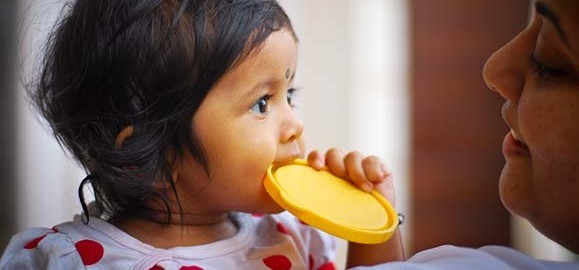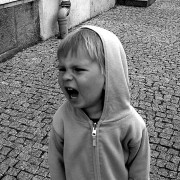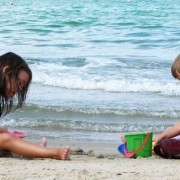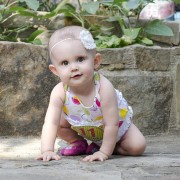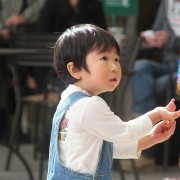YIKES – My Child is Biting Others!!!!
After work, I picked up my 2 year old daughter, Grace, at her sitters – my best friend, Nola. I was greeted with a glum face from Nola, who ashamedly told me that her 2 year old Nancy had bitten Grace on her back, when she couldn’t get her way. And she’d left teeth marks and drawn blood!
You can just imagine the feelings that all of us were experiencing – pain, horror, embarrassment, protection – both as Biter, and Prey! It was an absolutely horrible experience for all 4 of us!
The reality is that many young children do bite, and not just food! Those little new teeth are so sharp, and can inflict a lot of damage!
Anecdotal evidence suggests that about a quarter of children bite others, usually between the ages of 2-3 years.
Babies may bite, as they are teething, have sore gums and are learning to chew – very unpleasant if they are attached to Mum’s breast at that time – Ouchhhh! Usually we give them suitable toys to chew upon. You’ll find that a baby will not bite at the beginning of a feed, when they are most hungry. It’s usually when their tummy has been filled a little, and they get distracted. The key is to be alert!
Toddlers bite because they are tired; hungry (and therefore irritated); are getting their molars; are frustrated; and importantly because of their lack of language. If you are 2 and have limited language skills, and someone takes your toy – you just don’t have the language to ask for it back, and so you resort to primal behaviour!
Their biting can draw blood, leave gaping wounds and destroy a family’s welcome at Playgroup!
Obviously we need to discipline our Biter about appropriate behaviour. As parents we need to remember that the word ‘discipline’ means ‘to teach’ (it’s not about punishment!) So, how do we teach a toddler about this….
- Remove the biter from the scene of the crime – isolate them to another space. In a firm (but calm) voice say; “No, you can not bite!” and sit them down in the new location. (You may be in the same room, but on other sides.
- Direct more of your attention to the Bitten One, than to the Biter. This is not a time to say that the Biter is naughty, rather, acknowledge the hurt child’s feelings, eg “Oh honey, lets puts some cream on that (or wash it etc), have a big cuddle, and then we’re going to read a story”. The purpose of this is to soothe this child, and to convey a message to the Biter that you don’t get Mummy’s time when you bite. All children want parental attention!
- There is little evidence to suggest that making a child apologise here will help. The Biter acted out of frustration/ tiredness/ lack of words etc – which is a lack of skill development, which only comes with age – they did not wake up that morning with Biting as their goal for the day!
- Very soon after the incident, notice something the Biter is doing well/ behaving well, and acknowledge them for it:” Wow, you’re building great block towers there!” – this is for the child to learn that they get positive interactions with you, when they play/ behave nicely.
- Later in the day, do a little Role Play using your child’s favourite teddy. You (acting as the Bitten One) snatches the book that teddy is reading. Teddy, in frustration, bites you! Turn to your child and ask them : “What can teddy do when he doesn’t like something?” If you child does have limited language, give him a couple of possibilities (ask for it back/ ask Mum/ get something else.)
Remember not to over-talk the biting incident – many parents say too much. Be calm and concise in your message: ‘No, you can not bite!’ Too many words just confuses as child who is already upset.
Most children grow out of biting fairly quickly – more so if the parents are consistent in their handling of the situation.
P.S. Nancy and Grace are now adults, and are still friends, and Nancy is now a wonderful Mum to 2 children!
—
Image by mynameisharsha via Flickr
